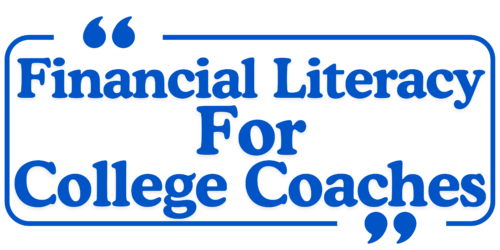Navigating Your First Coaching Contract: Essential Steps and Considerations
Entering the world of coaching can be an exhilarating experience, especially when you receive your first contract. Whether you’re coaching at the high school or collegiate level, this initial agreement marks a significant milestone in your career. Understanding the terms of your contract and knowing how to navigate this new role is crucial. Here are essential steps to take when reviewing your first coaching contract and tips on what to do next.
1. Review the Contract Thoroughly
Before you sign anything, it’s essential to read your contract carefully. Pay close attention to the following key elements:
Salary and Compensation: Ensure you understand your base salary, any bonuses tied to performance, and the payment schedule (monthly, biweekly, etc.).
Duties and Responsibilities: Familiarize yourself with the expectations outlined in the contract. This may include coaching responsibilities, recruiting duties, and administrative tasks.
Duration of the Contract: Check the length of the contract, including any provisions for renewal or termination.
Benefits: Look for details about health insurance, retirement plans, and other benefits that may come with your position.
2. Understand Your Rights and Obligations
Your contract will specify what is expected of you and what you can expect from your employer. Understanding these rights and obligations is essential for ensuring a successful coaching experience:
Job Security: Determine if there are clauses related to job security, such as conditions under which your contract can be terminated or what happens if you are not renewed.
Professional Development: Some contracts include stipulations for attending coaching clinics or obtaining certifications. Take advantage of these opportunities to enhance your skills and network with other professionals.
3. Consult with a Mentor or Experienced Coach
If you are new to coaching or unfamiliar with contract negotiations, it can be beneficial to seek advice from a mentor or an experienced coach. They can provide insights into the nuances of coaching contracts and help you understand what terms are standard and which may be negotiable.
- Ask Questions: Don’t hesitate to ask your mentor about any aspects of the contract that are unclear or concerning. Their experience can help guide you in making informed decisions.
4. Consider Negotiating Terms
While it’s important to be grateful for your first coaching position, it’s also reasonable to negotiate certain terms of your contract. Consider discussing:
Salary: If you have specific experience or qualifications that you believe warrant a higher salary, present your case.
Job Duties: If the job responsibilities outlined seem overwhelming or beyond your expertise, discuss any potential adjustments with your employer.
Professional Development Opportunities: Negotiate for support in attending coaching clinics, obtaining certifications, or other educational opportunities that may benefit your career.
5. Familiarize Yourself with Policies and Procedures
Every institution has specific policies and procedures that govern its athletic programs. Take the time to understand these rules, including:
Recruiting Rules: Familiarize yourself with NCAA or other governing body regulations if you are coaching at the collegiate level. Ensure you understand the rules regarding recruiting, scholarships, and eligibility.
Compliance: Learn about compliance requirements and how they affect your program and its funding.
Institutional Policies: Understand your institution’s policies related to conduct, dress code, and communication with student-athletes and their families.
6. Build Relationships
Your success as a coach will be heavily influenced by the relationships you build. Focus on:
Establishing Rapport with Athletes: Building trust with your athletes is essential for creating a positive coaching environment. Take time to get to know them both as athletes and individuals.
Networking with Other Coaches: Connecting with fellow coaches can provide support, resources, and collaborative opportunities.
Engaging with Administration: Establish good communication with your athletic director and other administrative staff. This can help foster a positive working relationship that will benefit your program.
7. Set Personal Goals
Once you’ve settled into your new role, take time to reflect on your career goals. Setting personal and professional objectives can help guide your actions and decisions as a coach:
Short-term Goals: Focus on immediate objectives, such as developing your coaching philosophy or establishing a training regimen for your team.
Long-term Goals: Consider your aspirations for the future, whether it’s advancing in your coaching career, pursuing further education, or developing a specific skill set.
8. Stay Adaptable and Open-Minded
Coaching is an ever-evolving profession. Be prepared to adapt to challenges and learn from your experiences. Embrace feedback from your athletes, fellow coaches, and mentors to continually improve your coaching methods and approach.
Conclusion
Receiving your first coaching contract is a significant achievement that opens the door to new opportunities and challenges. By thoroughly reviewing your contract, seeking guidance, building relationships, and setting goals, you can navigate this new phase of your career with confidence. Embrace the journey ahead and remember that every step you take as a coach contributes to your growth and success.
Written by Pat Brown, MBA
